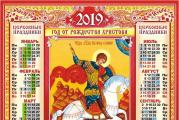APEC country participants in the year. Forum "Asia-Pacific Economic Cooperation" (APEC). APEC Efforts to Simplify Business
Despite the optimism of the Russian authorities regarding import substitution, it is too early to talk about its triumph. Often the place of "bad" countries is occupied by still "good" ones, and although the list of the first is growing all the time, there are still enough countries in the world for some time. However, there is still one area of the economy where the domestic can knock out competitors - tourism.
Just last year Russian tourists have taken $50 billion out of the country. It is no coincidence that tourism today is not just being paid close attention in the highest offices - tourism has become politics.
Methods of state intervention in this sector of the economy cannot be called soft, but some prohibitions with references to national security unlikely to reverse the trend.
Travel Consumer Behavior also changes: they become picky, independent, less susceptible to advertising enticement. In addition, in the field of view of the thinning domestic middle class in the last couple of years, new country: Russia.
The fight for the tourist
Either way, residents Russians travel abroad less and less. According to Rosstat, if the fall total number trips in 2014 compared to 2013 was about 14%, but this year they have decreased by 20%. At the same time, the number of trips for the purpose of tourism this year collapsed even before the fall of the Su-24 - by more than 30% in the first 9 months of the year. The figures for the whole of 2015 may reach the level of 40-50%. Of course, the Russian consumer will not simply refuse foreign tourism. Most of the tourists still travel in organized groups, and instead of Turkey and Egypt, travel agencies redirect the flow to other destinations.
According to the Association of Tour Operators Russia, throughout recent weeks demand for tours in United United Arab Emirates grew by 20%, to Thailand - by 10-15%, to India and Vietnam - by 5%, to Israel - by 3%. In addition, more and more tourists are setting off on their own, buying tickets and making reservations online.
According to the same figures organization, after the embargo on tourist trips to Turkey, the number of Russian citizens booking rooms in the resorts of Antalya increased by 20%. On the other hand, the number of Russian tourists who choose their own country for recreation is growing. Their number in some directions increased by 30%. Do not forget that foreigners have also become more interested in Russia: the number of foreign tourists increased by 16% in the first half of 2015.
For Russian regions growth domestic tourism - manna from heaven. This is an area that generates an influx of "quick money", allows local entrepreneurs to earn money and provides tax revenues, which the budget needs so much today.
Tourism is actively developing Altai region, Tatarstan, the North-Western region, the Volga region and, of course, the Crimea. The successes of these regions are already tangible, and most of the increased flow is directed there. But there are more unusual examples: the Murmansk region is doing very well in this area, the experience of which is also being looked at by others. arctic regions, such as the Nenets Autonomous Okrug, which is also part of the Northwestern Federal District.
Problems, especially with the infrastructure and accessibility of these regions are so great that private initiative alone is not able to take advantage of the clearly positive conjuncture.
And I go for emotions
Example of the Nenets Autonomous Okrug says that without active assistance authorities, both at the federal and regional levels, cannot be dispensed with.
In the NAO theory, there is what to offer to Russian and foreign tourists: northern lights, beautiful landscapes and natural monuments, the opportunity to see rare animals and birds, look at the life of reindeer herders, the customs and culture of the indigenous people of the district, not to mention hunting and fishing.
"We can create a tourist a product that would largely replace Finland for domestic travelers, the director of the Tourism cultural center Matthew Chuprov. - We have ideal conditions for hunters and fishermen, we can also offer ecological clean products reindeer breeding. What the county lacks to replace the Finnish tourism product in the domestic market is investment and a developed transport system."
"Any tourist leaves before just for emotions, but here they are, - Ekaterina Monakhova, general director of the Well travel agency network, is sure. - But the domestic tourist is spoiled today, he has seen a lot. He will happily rest in Russia, but our task is to give him the level of service that he is used to abroad. If such a level of service is created for him in the Arctic, a tourist will go there.”
"I'm glad that, as a result of changes in politics and the economy, many compatriots turned their attention to recreation programs in our country, - says the traveler and founder of RussiaDiscovery Vadim Mamontov. - The impressions that travel in Russia can give are no weaker than the emotions brought from foreign trips. Many compatriots are waiting for real discoveries in our country, in its culture and nature. In general, I assess the potential for import substitution in tourism as very high."
per segment active tourism, in which Mamontov works accounts for about 1.5-2% of the total tourist flow. Here, too, there was an increase in indicators. In the New Year months of last year, this was an increase of up to 200%, in some summer months- 20–30%. Mamontov has high hopes for the first holiday season of 2016 as well.
"Certainly not all those who refused foreign tours are chosen leisure in our country, says Mamontov. “Many people prefer the excursion format or a spa vacation.”
However, in the Nenets district to include such places as the first Russian city in the Arctic, Pustozersk or the Pym-Va-Shor thermal spring, into tourist routes, much more effort will be needed. The necessary infrastructure has not yet been built here, and there are problems with transport accessibility.
According to Mamontov, restraining a factor in the development of tourism in the northern regions of Russia is the high cost of air tickets. There are examples of exorbitant prices that exceed the cost of the tour programs themselves. For example, the price of an air ticket economy class from Moscow to Kamchatka this year reached 120 thousand rubles. If you calculate the budget for such a trip for a family of three, then it will turn out to be much more expensive than any tours abroad.
"We need charter tourist flights, when tour programs can be purchased in a package with tickets," Mamontov said.
Success won't be quick
Larisa Fedorova, CEO travel agency "Viaduct-Tour", also assesses the prospects for import substitution of tourism as a whole as rosy, although success, she believes, will not be quick, more efforts still need to be made.
The problem is that in the domestic tourism industry there are very few ready-made, honed and proven tourist products over the years.
"In the Russian Arctic there are very rich and varied material for the preparation of a good tourist product, but in order to make it good tours, interesting in terms of saturation and acceptable in terms of cost, a lot of work needs to be done," says Fedorova.
The same task is to the country's tourism industry as a whole. We have to create new brands, organize and equip tourist infrastructure, train professional personnel and, of course, invest great efforts in promoting these brands.
According to Vadim Mamontov, The Internet should become the main channel for promoting brands: "We need to invite photobloggers who can tell about the most beautiful places, and promote awareness of new Russian travel brands through social media."
Needs to be shaped and developed such brands, create demand for them, Larisa Fedorova believes. In parallel, it is necessary to solve the main problems hindering development, namely: how to deliver tourists to places of interest to them and how to provide them with the amenities that many of them are used to on foreign tours. The quality and quantity of rooms in the hotel fund, tourist bases of a good level are important here.
Industry experts believe that Today, even those companies that were engaged exclusively in outbound tourism are to a large extent reoriented to inward tourism: for them it is a matter of survival. In this regard, companies are opening up new directions and are looking for new interesting offers all over Russia.
One of these companies- "Mosturflot" specializes in cruise tourism. “Many of our tourists, when buying a cruise, noted that if earlier they allowed themselves several trips per year, including foreign trips, this year they refused to travel abroad,” says Svetlana Goncharova, Deputy CEO companies.
Cruise tourism in this year is experiencing big problems. "In 2015, domestic demand for cruise tourism grew by about 15%, while inbound traffic fell by about 30%. 60% fewer Americans came to us, 30% fewer Australians, tourists from the UK and Denmark almost disappeared "The drop in inbound tourist traffic was not offset by an increase in domestic traffic. The depth of sales decreased markedly, and demand was only supported by discounts."
Falling demand from foreigners today can be compensated by domestic tourists. " Next year is sold 13% better than the current one, but mainly due to regular customers, - says Goncharova. “They note the beauty of the surrounding nature and its diversity, a huge number of historical and cultural monuments of our country as an advantage of a holiday in Russia.”
Compensation for holidays in Russia
We've all seen ads resorts and destinations, but the Russians, it turns out, know very little about the possibilities of recreation in their own country. So, "Mosturflot" conducted a survey among Muscovites, what do they know about river cruises. The result was unexpected: 64% of Muscovites said they did not know anything about them. However, 93% of respondents said that they would be interested to know about it, and this is encouraging.
Svetlana Goncharova believes that Import substitution in tourism can also be helped by the proposal of the Ministry of Culture on partial compensation of expenses for the purchase of holiday vouchers in the territory of the Russian Federation. If the law proposed by the Ministry of Culture is adopted, up to 50 thousand rubles will be reimbursed for holidays in Russia.
According to Svetlana Goncharova, For import substitution, it is necessary, firstly, to bring accommodation facilities and services up to modern requirements, and secondly, to convey to the consumer information about the variety of tourist destinations, their uniqueness and accessibility.
It is worth noting that it tourism last year was the fastest growing sector of the Russian economy. It has been proven that investments in tourism create more jobs than investments in other areas. This gives an impetus to small and medium-sized businesses, which brings additional income primarily to local budgets, which means more money appears to solve pressing social problems.
The Russian Arctic has the potential to to replace Finland for tourists, but for this both the state and business need to make a lot of efforts.
Import substitution occurs in the traditional way. Because of the sanctions, the crisis, Russian tourists have stopped traveling abroad and are more and more resting in St. Petersburg. Last year, the number of Russian tourists visiting St. Petersburg increased by 15-20%. Profitability per hotel room in St. Petersburg in the I quarter increased by 16%, to 1.5 thousand rubles, compared with the same period last year. The military, representatives of law enforcement agencies reoriented. There are examples when the leadership of the largest domestic state-owned companies instructed that employees, at the expense of corporations, rest mainly on the territory of Russia.
Julia Koplan-Dix
Representative of the Center for Import Substitution and Localization of St. Petersburg
Select the fragment with the error text and press Ctrl+Enter
During the year of Peru's APEC Presidency and in preparation for the APEC 2016 summit, the focus of the economies of the Asia-Pacific region was focused on the following issues.
1. Deglobalization. The slowdown in the growth of the world economy and international trade, the lack of progress in the Doha round of the WTO, Brexit and the victory of D. Trump in the US elections cast doubt on the feasibility of not only globalization, but also the expansion of free trade within the emerging partnerships.
AT current situation ratification of the Trans-Pacific Partnership, completion of negotiations on the Chinese project (RCEP) or the Transatlantic Partnership in the near future are unlikely. Against this background, the inconsistency of trade policy (partnership agendas and regional integration) and the demands of society. Involvement of citizens, small and medium-sized companies in international trade, inclusive trade policy, ensuring development objectives come to the fore.
2. Digital economy. The most dynamic issue, the discussion of which is rapidly gaining momentum in APEC and other venues (G20, WTO), has become the digital economy (and trade). This agenda is actively promoted by:
— USA in the interests of national IT companies (Apple, Google, Facebook, Microsoft): unhindered access to IT infrastructure in all countries of the world, no blocking and restrictions on data flows, no requirements for server localization, no duties and taxes on goods supplied digitally (apps, music, movies, other information).
- China (JD.com, Alibaba): building infrastructure for Internet access and raising the duty-free threshold for parcels - shopping in online stores.
Considerable attention is paid to the protection of intellectual property and personal data. Other countries, including Russia, raise issues of information security, digital monopoly and excessive concentration of data in developed countries (USA and EU), issues of consumer protection and placement of appropriate servers, issues of creating open data arrays.
Presumably, the discussion of these issues will be a key issue on the national and international agenda of the world's leading economies in the coming years.
3. Formation of the Asia-Pacific Free Trade Area (AFTA). An important outcome of APEC-2016 was the completion of the Collective Strategic Study of the Opportunities for FTAAP Implementation and the consolidation of recommendations for further actions to implement FTAAP in the Declaration.
The Russian achievement in this matter was the recognition of the importance of the Eurasian economic union in the process of forming FTAAP and the need to establish cooperation with regional economic blocs. This was due, among other things, to the Russia-ASEAN summit held in May in Sochi and the entry into force of the agreement with Vietnam.
4. Roadmap for the development of trade in services. The result of APEC 2016 was the formation road map on sector development and trade in services. Initially stated by the initiating economies (Australia, USA), the goal was to open markets and eliminate maximum number restrictions. Taking into account the different levels of readiness of APEC economies to open markets, the final document takes into account the need to develop national markets services and improve their competitiveness through improved regulation and gradual opening of markets.
The key targets set by the roadmap until 2025 include reducing restrictions on trade in services and investment, increasing the share of exports of services, expanding mutual trade in services in APEC, and increasing the value added of the service sectors.
The Leaders Declaration is available at




